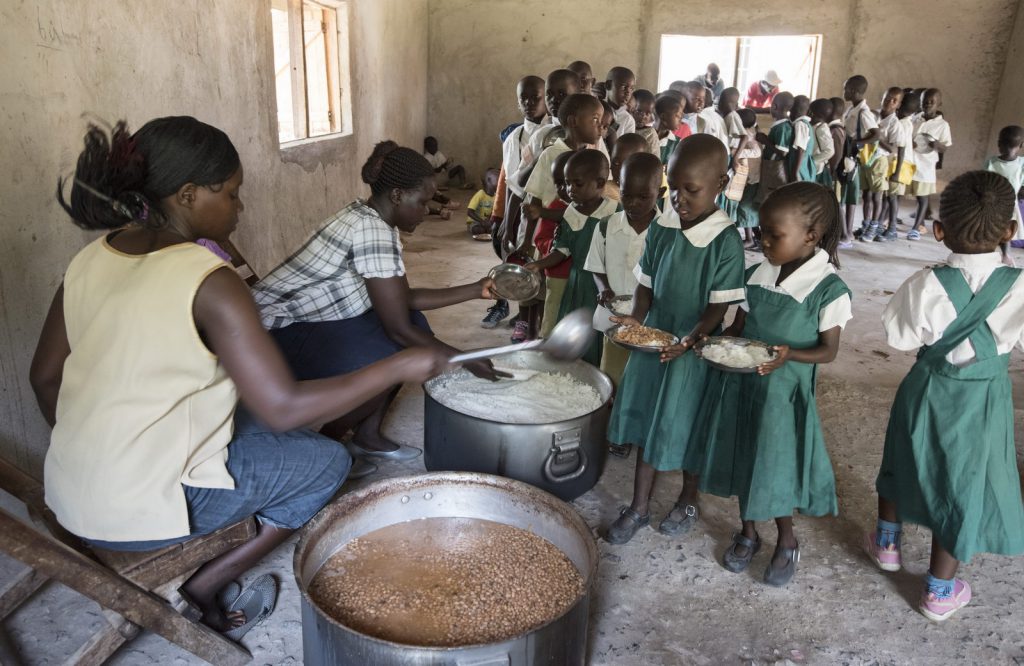For many young children in Sub-Saharan Africa, hunger is a way of life. Children often don’t receive enough to eat at home, which can slow physical development and impact learning.
Research demonstrates a strong link between nutrition and cognitive development. Undernutrition (not getting enough to eat each day) delays brain development and hinders the ability to learn. The findings are striking; the longer a child goes without adequate nutrition, the greater the chance of learning delays.
This may seem like a bleak prospect for children growing up in resource poor countries, but the good news is that improved nutrition can change the effects of not getting enough to eat early in life. In other words, it may be possible to offset the early impact of undernutrition on brain development and learning by providing adequate nutrition as kids get older. When children are adequately nourished, they have energy to fuel rapid brain development and learning improves.
In response to chronic undernutrition among students at the Konditi Primary School, I-KODI initiated a lunchtime feeding program to provide children of all ages with a solid meal during the day. Each day, children receive a large portion of freshly cooked maize and beans. Food is prepared on-site by local cooks and distributed to each class on schedule. Students have time to eat and they return to the classroom more alert and better able to concentrate on their lessons.
We invite you to learn more about our Lunchtime Feeding Program and to join us in supporting efforts to increase the positive impact of improved nutrition on health and learning.
I-KODI is a registered, tax-exempt 501(c)3 organization
